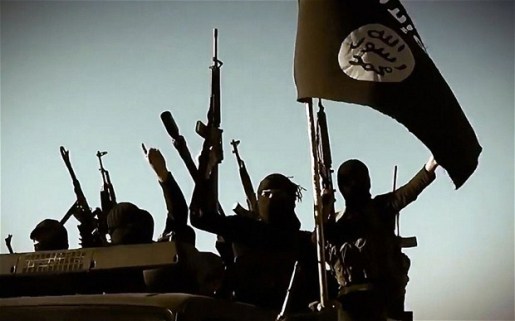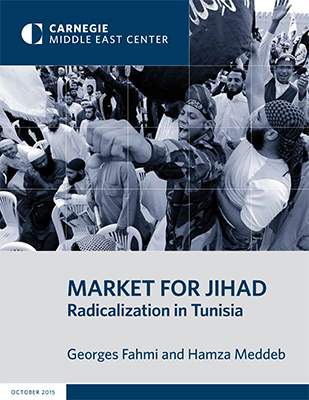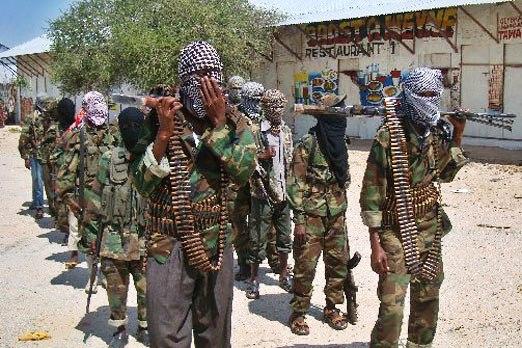
In 2015 the Carnegie Center for the Middle East published a study entitled Market for Jihad: Radicalization in Tunisia, by the researchers Georges Fahmi and Hamza Meddeb.[1] This study was of great interest to me since it provided cogent evidence of the state of disorientation and loss of direction in research centers and decision-making circles on how to deal with one of the most serious issues in the history of humanity: the unprecedented growth of the phenomenon of Islamist extremism and terrorism which has extended virtually over the entire map of the world.
Hiroshima 1945: The Atomic bomb and US occupation did not lead to the growth of movements of anger, extremism and terrorism
ACCORDING TO Sheikh Mohammed bin Rashid: “ISIS is not merely a terrorist organization, it is a malicious idea. The ideology underpinning ISIS is the same as that underpinning al-Qaeda, and the same one underpinning al-Qaeda’s fellows in Nigeria, Pakistan, Afghanistan, Somalia, Yemen, the Maghreb and the Arabian Peninsula. It is the self-same one that has begun to seed itself in Europe, America and elsewhere … the military infrastructure of the organization can be defeated … but what about the intellectual infrastructure of this organization? …”
He continued:
We need to confront this pernicious thinking with an enlightened, open-minded thought, one that accepts The Other and co-exists with him, an enlightened thought emanating from within our Islamic religion, one which calls for peace, forbids bloodshed, preserves dignity, populates the earth, and directs the forces of mankind towards doing good and helping his fellow. The suicidal youth who seeks to die for his faith out of some malicious conception can only be stopped by a conception that is yet stronger, one that can guide him to the Right Path.
And as Prince Salman bin Hamad understood it:
The tide of these groups will wax and wane, but in the meantime we must not lose sight of the fight and the defeat of the ideology they rely upon for support. At the same time we must divest ourselves of the so-called ‘War on Terror’ and focus our efforts upon confronting the rise of this sinful, fascistic theocracies.
The Carnegie Center study Market for Jihad addressed two aspects. The first was an analysis of the situation in Tunisia for the purpose of uncovering the factors leading to the continuing growth of the Tunisian jihadist current. The second provided a vision for the solution, which came down to calling upon the Tunisian government and other active political and religious agencies in Tunisia to develop a strategy to counter extremism, one that would lead to reform in the political and religious spheres. According to the reasoning adopted by the study, the escalation of violence in Tunisia and the exportation of extremists into Syria, Iraq and Libya was due to various factors, foremost among which the monopolisation by the former President Ben Ali of the religious sphere and his total neglect of socio-economic issues, the disillusionment of the youth and the poor handling of the Salafist currents after the revolution, in addition to the persisting recession and lack of prospects for young people and their sense of disappointment.
The study suggested a number of solutions, including the following:
- prioritise strengthening social integration and advancement, and confront frustration among the youth;
- consolidate the political integration of the Salafist movement, noting that it “should be allowed for individuals who want to work within the organization, civil society and political frameworks to do so freely while respecting the laws”;
- Seek a balance between state control over the religious sphere and the state’s allowance of peaceful religious forces to express themselves, and encourage official imams to compete with the Salafi preachers in the fashioning of a more diverse market of religious ideas.
prioritise strengthening social integration and advancement, and confront frustration among the youth; consolidate the political integration of the Salafist movement, noting that it “should be allowed for individuals who want to work within the organization, civil society and political frameworks to do so freely while respecting the laws”; Seek a balance between state control over the religious sphere and the state’s allowance of peaceful religious forces to express themselves, and encourage official imams to compete with the Salafi preachers in the fashioning of a more diverse market of religious ideas.

Suggested Reading
Since the emergence of the phenomenon of extremism in the Arab and Muslim world, analyses undertaken by well-known research centers – in their interpretative framework of the phenomenon and its growth – did not go beyond a limited circle of causality, one that has become rehearsed for its being constantly chanted and circulated. This causality may be summed up as the frustration of young people and the closing off of horizons before them as a result of deteriorating social and economic conditions, despotic rule, the lack of democracy, and finally the support of the West, especially America, for the State of Israel and the West’s double standards when dealing with Arab and Islamic issues.
We believe that what these research institutions and political decision-making and conceptual formation centres have understood as reasons for the Islamist radicalization are nothing more than triggers, since the real roots lie in another sphere: the field of ideas and concepts that formulate the collective mind and conscience of the peoples of the Arab and Islamic worlds. What follows is a summary of the thousands of indications and factual evidence:
- The spread of extremist ideas in all countries of the Islamic world and among almost all Muslim communities in the West, despite the fact that many of them enjoy a high degree of material well-being, as is the case in the Persian Gulf and Western countries;
- The spread of these ideas in countries also with large degree of democracy such as Tunisia, Pakistan, Kuwait, Nigeria and of course Western countries;
- Economic decline and frustration caused by unemployment and lack of opportunities are global phenomena, suffered in the past and still now by a wide range of countries in the world, but which do not result in political and intellectual extremism transforming into a sweeping and widespread societal phenomenon, to the point that it has constituted a marker for an entire era;
- Most of the world beyond Europe and North America has been subject to colonialism and oppression, and suffered violation and earth-shattering atrocity and, indeed, there is a people exposed to one of the most horrific ordeals in human history – I refer here to the atomic weapon unleashed upon Japan and its direct subordination to US occupation – but this did not lead to the growth of movements of anger, extremism and terrorism to the extent that we see today;
- The preoccupation of extremist movements with issues that have no direct or even close relationship to the reasons put forward by the researchers: reasons such as poor economic and political conditions or the Palestinian crisis. Yet it is clear that these movements choose to carry out their operations in arenas as far removed as you could get from the impact of such conditions. Such as ISIS’s selection of an arena far distant from Israel to carry out its main activities, or the extremists’ selection of targets not directly related to the causes that research centers and decision-making circles are trying to convince us of. Such is the case with the bombings in France, Belgium and America, where in the case of the last the Boston bombing was carried out by radicals from Chechnya, whose problems had nothing to do with America. The same goes for the Moscow theater, trains in London and Madrid, the wholesale murder perpetrated by Boko Haram in Nigeria, the destruction of girls’ schools in Pakistan and Afghanistan, explosions in Egypt, Turkey, Kenya, Indonesia, Tunisia, and the storming of hotels in Mumbai, Bamako, and the slaughtering of worshippers in Saudi mosques and so on. Indeed, recent history confirms for the astute observer the terrorist organizations such as ISIS and al-Qaeda never once targeted Israel, even though it lies closest to their field of their operations, and even though Israel is the state most responsible for the killing of Palestinians and Muslims.
Further to the above-mentioned report, we feel that it has added nothing essentially new except that it focused on Tunisia in particular, something which in itself constitutes one of the failures of Western policy in that the phenomenon of the Islamic terrorism and the capacity of terrorist organizations to mobilize millions, and even neutralize the majority of other Muslims whose outright sympathy it has failed to gain, is a global phenomenon stretching over the almost the entire planet. It would therefore appear logical, and even a duty, to look for its roots and the causes for its emergence and development and, in general, to research it as a generic phenomenon.
Perhaps what the above-mentioned report does do that is new is that it did not employ the other usual arguments justifying the oppressive emergence of extremism and terrorism – such as ascribing extremism and terrorism to the West’s position on the Palestinian issue and its double standards in this respect, or the other prevailing argument prior to the recent events ascribing it to the predominance of dictatorship and tyranny in the Arab regimes. It seems clear that these factors in the body of the study referred to were passed over because centers of research and thinking in the West have discovered only late in the day that extremists have no interest in the Palestine question, in that they chose to carry out their massacres at a point as far removed as possible from Israel, and indeed the Palestinian issue is but occasionally referred to in their writings! The researchers also found practical evidence that the issue of political dictatorship and tyranny is not the determining factor for extremism as evidenced by the increase in extremism in almost the only example of a successful liberal democracy in the Arab world, that is, in the Tunisian experience!
What is generally understood as reasons for radicalisation are nothing more than triggers
Another clear evidence of the erroneous assumptions upon which the analysis is based is that some of their very recommendations are as far away from having any contact with the solution as you could get. Consolidating the political integration of the Salafist movement by “allowing individuals who want to work within an organised political framework, within civil society, and moreover to do so freely while respecting the laws” is something that is already entirely the case.
Indeed, the Salafi movement, being one of the main tributaries of extremism, is itself virtually the only movement that enjoys the highest degree of freedom in the Arab Muslim world. To “allow peaceful religious forces to express themselves, and encourage official imams to compete with the Salafi preachers in the fashioning of a more diverse market of religious ideas” already exists and is readily available, and in the users deleted an early albeit taking the form of a one-man theater, in that the overwhelming majority of official imams who are to be tasked with competing with the Salafist preachers are themselves Salafist preachers in one form or another.
As for the few moderates that there actually are, their moderation lacks this alternative vision or strong intellectual support based on principles of knowledge distinct from those underpinning the Salafis, principles that have been embedded for hundreds of years and thus taken as read for being deeply ingrained and approved of by the official religious institutions. What is more, this limited number of moderates suffer from the administrative and media blockade imposed upon them by the official and civil institutions that are controlled by Salafis, thus scattering their voices to the four winds!
The importance of changing the current Western-oriented policy
The West, led by the United States, has made a major mistake in its diagnosis of the roots and characteristics of fundamentalist theocratic ideology afflicting every corner of the world and the reasons for its emergence. Up to now, the West has neglected to look at the intellectual and ideological side in the production of this terrorism. The dominating intellectual framework in Islamic societies now is in general a retrograde, theocratic framework that does not accept living and coexisting with the values of modernity, and it is only reconciled to its material products. It is a framework that seeks to wall up the values of communities and their political, social and legal concepts and institutions within the confines of what they were 1,000 years ago, and they make the claim that the solution to today’s issues lie in the closed-off heritage of the past.
It is true that the vast majority of Arabs and Muslims want to live in peace and seek to interact with the world positively, but in light of present day reality the prevailing intellectual framework is to a great extent too weak to carry out its role as catalyst for the adoption of the values of modernity or to strengthen its presence in the mindset and the current collective conscience. Nor does it provide an appropriate antidote for severing the ties of extremism and terrorism from its basic sources: the intellectual infrastructure whose roots go back centuries. The ideology of extremism and terrorism have not emerged from a vacuum or outside the founding conceptual framework of Arab-Islamic culture. To eliminate them therefore necessarily requires us to re-examine these concepts and connect them to the values of the present age, so that on the one hand this becomes the means to dry up the intellectual headwaters of the ideology that incubates extremism and terrorism, and on the other hand acts as a creative driving force to inspire peoples of the region to redirect themselves towards making an effective contribution to human progress.
Terrorism is a mindset not a state
From the reactions of the western leaders and politicians following the bloody events in France during the month of November 2015, and their determination to fight and defeat ISIS militarily, it is evident that there is a glaring ignorance of the fact that ISIS represents an idea and not a geographical entity or a political organisation with clear targets for sea fleets and air squadrons. The simplest evidence for what we are saying is that ISIS has created for itself a territory and state in the geopolitical sense in a very short period of time, through amassing together people who have no connection at all to that land, in much the same way as its sister-organisation al-Qaeda and its allies, who were a hairsbreadth away from seizing control of the entire Republic of Mali, thus decisively changing the balance of power in North and West Africa were it not for resolute French military intervention in early 2013.
Terrorism, then, is capable of influencing the average Muslim and turning him into a bomb within a very short space of time as is evident from the examples, illustrated by the media, of suicide bombers who only shortly before were alcoholics or drug addicts or with criminal backgrounds. It is capable of creating a state or quasi-state in a brief period of time when the simple conditions for this are available. Accordingly, the direction of our gaze must be turned from the ground upwards and focus on what is going on in people’s heads!

Suggested Reading
It is clear that there are arguments, repeated thick and fast by most researchers, politicians and activists, suggesting that these extremists are very few in number and represent only a small sector of Muslims, and that Islamic societies should therefore not bear responsibility for these abnormalities that they evidence. This interpretation, for all its apparent accuracy, hides a more important truth: those responsible for acts of extremism and terrorism are not the ones who shape these communities, rather it is the intellectual climate prevailing in these communities, which impels young people towards walking the path of extremism and terrorism. In fact, the most striking feature of this environment, one which we consider to be the nub of the problem, is the reliance of Muslim communities upon specific concepts of Islam that have been adopted at both the official and popular levels, concepts whose foundations have remained unchanged for almost a thousand years. These concepts reinforce in the collective mind of contemporary Muslims these following perceptions:
- The providing of solutions to all human issues, including aspects related to the natural and social sciences, is an integral part of the religious system;
- The fundamental criterion for determining one’s standpoint on social phenomena resides in the concept of halāl (‘permissible’) and harām (‘forbidden’) and not in the process of weighing up in the mind as to what is the likely correct or erroneous solution, or may be judged to be beneficial or harmful;
- The relationship between Islam and Disbelief is one of competitive conflict.
The perceptions manifest themselves in the operative and behavioural aspects of the Muslim in very diverse ways depending on differences in the degree of culture, knowledge, and educational training, in addition to the social and political climate. The general mindset of the majority of the Muslim community, and their behavior, tend towards sticking to the regular performance of religious rites and taking general religious values such as morality, honesty and distancing oneself from well-known taboos such as theft, adultery and the consumption of alcohol. These things reconcile with the realities of the modern age and its general values. But this does not negate the existence of an influential minority, numerically and intellectually speaking, that tends towards harsh rigidity. Some of this rigidity is confined to matters such as a backward view of womankind and democracy, or to an adherence to issues of form such as the growing of long flowing beards and the shortening of the thawb above the ankle. Other elements are more rigid and broaden the circle of taboos to include all intellectual products and the value system of contemporary societies, and even get to the point of preferring death to life in the cause of implementing, on the one hand, its imaginary vision of an Islamic society and, on the other hand, ridding oneself of all previous sins and transgressions.
Unfortunately, the upward curve is numerically and intellectually oriented toward hardline rigidity in its various flavours, and this is something that does not need much effort to prove. It is enough for us merely to point out that, up to now, there has been no popular movement (even of limited scope) in the Muslim world to condemn the barbaric behavior of a minority sowing terrorism throughout the whole world, and which have even targeted Sunni communities whose values are consistent with their same general principles of Salafi Islam, such as in the case of the explosions in Saudi Arabia and Tunisia. One need only reflect on the scene at the early days of the Syrian and Libyan revolutions, during in their peaceful phases, to see that the political discourse was almost all of it based upon religion in its Salafi form. It is enough just to see what is taking place in the social media where the vast majority of ordinary Muslims condemns terrorism but seeks explanations for its existence outside the intellectual framework that creates it, such as by saying that it stems from Israel’s killing of Palestinians or the French massacres of Algerians, and so forth.
The Salafi movement, one of the main tributaries of extremism, is the only movement that enjoys the highest degree of freedom
All this without tasking themselves to explain the reasons why Jews shunned the approach of suicide attacks against Germany (now the most important supporter of Muslim refugees today), despite the massacres the Nazi state perpetrated against them at the time and which are incomparably greater than what is happening to the Palestinians. Why did the Japanese, victims of the worst military ordeal wiping out hundreds of thousands in a horror not seen in human history, not take this same direction? Why did the unjust war against Vietnam not lead to the Vietnamese people seeking revenge over innocents in America by blowing up their planes, for example? And why are Eastern European countries co-existing peacefully with the Turks who humiliated the Armenians and Bulgarians for many long years, or with the Russians who severely oppressed them and crippled for decades their economic and political development? And there are many other examples too numerous to mention.
If we seek to read the current situation and its close connection with the a mindset founded upon a particular religious interpretation, set down nearly a thousand years ago, it must be emphasized that militancy and extremism, which can get to the stage of equating death with life, is nothing new to the history of the Islamic world. It could even be said that its seeds were sown in the intellectual and cultural component of the Islamic Arab state at its very inception. To give examples closer in history, we could cite the experience of the Wahhabi victory over the Arabian peninsula in the eighteenth century or the Mahdist War in Sudan in the nineteenth century; these were no less violent and bloodthirsty than ISIS today, and exhibited the same conception of the entire world as the Dār al-Kufr (‘Abode of Disbelief’) that has to be fought until brought to its knees and made forcibly to enter the Dār al-Islām (‘House of Islam’).
What is to be done?
It is clear that the entire international community is now engaged in the fight against terrorism by traditional military and security means, now and then calling upon politics. This is something acceptable in the case of military conflicts between states or between a state and its rebels, given that political and security doctrines were originally established to protect the homeland and ensure its territorial integrity.
But the fight against terrorism is very different. The enemy does not have a direct link to a land which it fights over, and is zealous for, since the concept of nationhood does not exist for them at all. Moreover, the enemy does not have a fixed address or a personal identity. It can appear anywhere in the world and strike at any fixed or movable target. All that this enemy requires is a little bit of explosives and the simplest of weapons. As illustrated by the events in France on both occasions, the number of the enemy could be counted on the fingers of one hand, but in a matter of minutes it made the entire world hold its breath, changed its political and economic indicators and launched the fleets and thousands of elite troops of the best armies in the world against it.
The West has neglected to look at the intellectual and ideological side in the production of this terrorism
The fight against terrorism and Islamic extremism is a strategic battle. It requires the international and regional community to understand the true mechanism for the emergence and development of these groups, and before that, to convince itself that it is in the first place an ideological issue. If these conditions are in place, the international community can overcome it in the shortest possible time and with the least possible pain. This is possible, from our point of view, through the following axes additional to the currently active military and security axes:
The intellectual axis
We have already pointed out that the Islamic discourse – we do not say the Islamic religion – prevailing now was drafted almost a millennium ago. At the level of its founding principles, that are based on prioritising narrative over knowledge or repetition over the intellect, it is responsible for all the negative phenomena in the Muslim world today: the absence of good governance, weak participation in any aspect of human civilization, the effort to destroy this very civilization. Among the concepts forming its founding principles are: “There is to be no independent reasoning with respect to the Scripture”, “Precepts are derived from the universality of the expression, not the specificity of the context”, “Follow the majority consensus” and similar views and concepts that have nothing to do with religion so much as they are the ideas of scholars and the jurists of past centuries that have come to be established and considered a fundamental part of the religion itself, despite the fact that the Qur’ān specifically forbade giving any consideration for anything that was not the word of God:
Follow that which is sent down unto you from your Lord, and follow no protecting friends beside Him. Little do ye recollect! [Qur’ān VII,3]
and despite the fact that in the experience of the Orthodox Caliphs there are examples that confirm that the concept of “There is to be no independent reasoning with respect to the Scripture” which has closed off the mind of Muslims, is actually not true.
Fortunately the last few decades have seen the emergence of hundreds of courageous voices, which have taken on the task of reviewing the Arab-Islamic heritage and critiquing it by employing its own tools. More importantly, they have laid the foundations of a new Islamic discourse, one that has the ability to create a consensus and the required balance between the requirements of the religion and the requirements of the times. for the first time in recent Islamic history there is a real possibility for refuting the Salafist school by using the religious text itself. Luckily also, some political leaders in the Middle East, whose allegiance to the faith cannot be questioned, have put her finger on the source of the wound, examples of this are the statements of Sheikh Mohammed bin Rashid, Vice President of the UAE and Ruler of Dubai and of Prince Salman bin Hamad Crown Prince of Bahrain, mentioned at the head of this article.

Suggested Reading
When we say that the intellectual foundation for extremism and terrorism has been undermined or defeated, we mean that this has occurred on the theoretical level. Of course, no theory has any value if it is not related to facts on the ground. It becomes decisive, for as long as an alternative thinking is available, and there is a political will to grant it legitimacy to expand and grow. It also requires the provision of the pulpit and media channels in order to achieve the desired effect.
The political axis
The Salafi ideology is directly responsible for extremism since it furnishes the jihadist current with the founding concepts which we detailed earlier, and which can be easily adapted to serve the objectives of extremism and terrorism. This Salafi thinking is the only Islamic thought that is given free rein in Islamic countries, the only one inculcated to the youth and to adults, and the only one allowed expression in mosque pulpits. Given that this is the case, heavy political pressure must be brought to bear in order to create the right climate for disseminating and alternative religious thought that is based on the Message itself, one that is in line with the times, and is consistent with general human values, those attained to by humanity and embraced for the most part by Muslim states.
This required political pressure must be aimed at forcing these states to wield effectively control over those religious institutions that boast huge material resources in order on the one hand to reduce their negative impact and on the other hand make room for the voices of enlightenment and rationality. It was really shocking that the Egyptian state, with all that it has been suffering from terror strikes, should have chosen to choke off one of the limited voices challenging Salafi thought from within the religion itself, and which found its outlet on television in the person of Mr. Islam Beheri. He was institutionally suppressed by the organs of the state and expelled from the public media in a surprising and lamentable way. At the same time, the same country that is fighting terrorism opened up the doors of the official and unofficial media to thousands of voices expressing the Salafi ideology that feeds the extremism and terrorism that it is fighting against!
Political pressure must be directed towards returning the mosque to its natural position as a place of worship and not of politics or the mobilisation of views disseminating hatred. The mosque today plays a very dangerous, negative role in spreading political discourse and constitutes a free meeting point where advocates of Salafi ideology can listen to the instructions of preachers and organise their activities. In this we see that the examples set by European jihadists provide living proof of the danger presented by the mosques in furnishing the appropriate environment for the growth of extremism and terrorism, since it is clear that the vast majority of them formed their convictions through the mosque in one way or another.
In addition, the political pressure we are calling for must be directed towards reforming the educational process by raising the status of the intellect and maximizing the students’ analytical capabilities as a substitute for tired-out indoctrination and cramming. The educational system in Islamic countries is based on the mandatory and intensive teaching of religious materials, from the phase of pre-school education right up to the undergraduate stage; It is well-known that such courses have been developed by institutions that adopt the Salafist understanding of the faith, and thus one has to bring concerted political pressure to bear towards lightening the religious dosage that bases itself in the educational process upon indoctrination, and instead adapt itself to the mental and psychological abilities of students. It must also be directed towards purging religious education of anything that might contribute to configuring the mind of the student to be hostile to the values of modernity or the methods of achieving this.
The media axis
It is one of the ironies of fate that the greatest achievements of modern man, such as live television broadcasts and the internet, have been turned into what is the most important and the most dangerous weapon in the hands of extremists and terrorists. Just taking a passing glance at the broadcast channels in the Muslim world, we find that the content of the overwhelming majority of these are a platform for the dissemination of the Salafi ideology in all its various flavours, and are the stage for broadcasting calls for individual and social backwardness. Equally, the overwhelming majority of materials circulating on the social e-media are dedicated to the same task. Hundreds of new messages are launched daily laying siege to the Muslim with written and audio-visual materials excerpted from antique, traditional religious books and seminars of “scholars” and jurists in such a way that a Muslim individual is not granted the opportunity to think rationally and independently. It is very clear from any monitoring and analysis that broadcast material is being highly professionally prepared so that even minor events are presented in such a way as to send a message, in an inflated form and with different angles, so as to yield the desired effect.
Political pressure must be directed towards returning the mosque to its natural position as a place of worship and not of politics
To give an example, in conjunction with the recent attacks in France, dozens of clips focusing on the horrors committed by the French during the war for independence in Algeria were broadcast, and presented in such a way as to cancel out any feelings of sympathy with the victims of the attacks in France, on the grounds that such attacks were a natural and legitimate retaliation. At the same time, there is a total silence concerning the bombings that affect Muslims of a religious sect such as the explosions in mosques in Saudi Arabia, or on buses in Tunisia. Salafist content and reach has got to the point that one of the most important concerns for the media and communications is the issue of scientific miraculousness whereby modern discoveries of mankind have been turned into divine miracles pre-figured 1,400 years ago in the Qur’ān, in flat contradiction to the normal and natural way to think! The danger of this type of content lies not only in the fact that it is misleading, but in the way that it consecrates the dangerous way of thinking, through constant means that do not let up for a moment, that religion contains the solution to all issues of humanity. It goes without saying that this religion is to be interpreted and presented solely by ‘specialist’ imams, preachers and ‘scholars’.
It is incumbent upon any powers seeking to combat extremism and terrorism to take into consideration the need to establish strict laws howsoever and wheresoever these are available, to close off these windows through which the extreme mindset can penetrate. At the same time powerful media organizations should be established for the purpose of refuting the basic ideas underpinning the Salafi ideology, and transmitting an alternative, enlightened, thought.
[1]http://carnegie-mec.org/2015/10/15/market-for-jihad-radicalization-in-tunisia/ij5l




